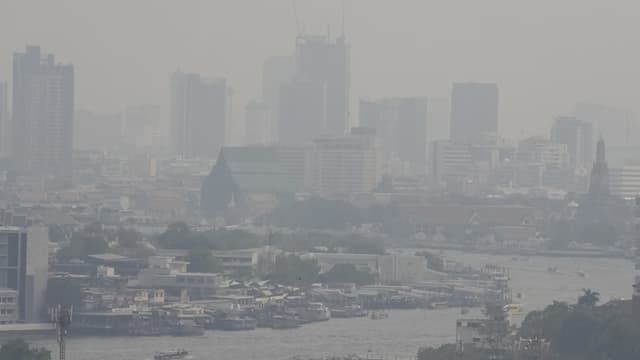- The annual smog season was officially declared in Bangkok in January.
- Now city employees have been ordered to work from home.
- The fine dust mist comes primarily from burned fields in northern regions and from local traffic.
In addition to city employees, private sector employees should also not leave their homes for work, Bangkok authorities recommended. It was said that air pollution had risen to unhealthy levels.
Always smog
Air pollution has been a problem in northern Thailand and especially in the capital for many years. The main causes of the annual smog problem are the burning of forests and harvested fields as well as heavy traffic.
If, in dry weather, an atmospheric inversion layer is added over the region, which makes air exchange more difficult, thick smog occurs in Bangkok.
In recent years, Bangkok has suffered greatly from long periods of high air pollution. They also led to school closures and other disruptions. However, the smog season usually only begins at the end of February, and not in January, as is the case this year.
Air harmful to health
The air quality index (AQI index) in Bangkok was recently around 160 – according to the World Health Organization (WHO), the 24-hour average value of 56 should not be exceeded.
The microscopic fine dust particles can penetrate deep into the lungs and then spread throughout the body, causing both short-term bronchial problems and serious long-term health problems.
Middle class complains
Air pollution is increasingly becoming a political issue in Bangkok as the middle class becomes increasingly dissatisfied and vocal.
Prime Minister Srettha Thavisin said on Platform X that about a quarter of Bangkok’s air pollution comes from exhaust fumes from cars and motorcycles. He did not name the other sources.
According to Thavisin, the next steps could be a temporary halt to construction and a limit on the number of diesel vehicles in the city center.
